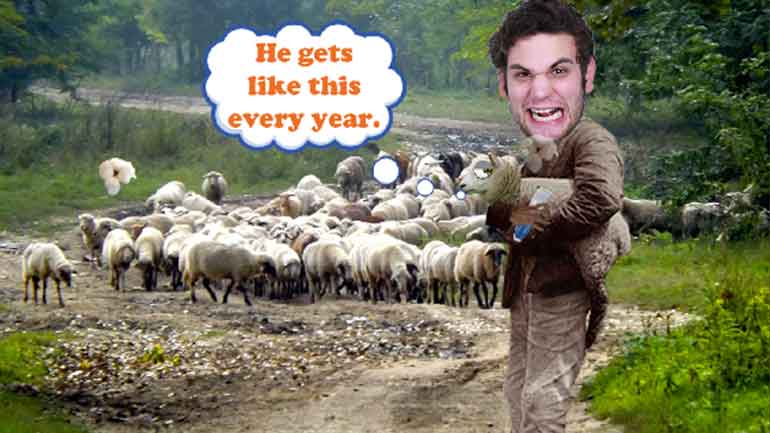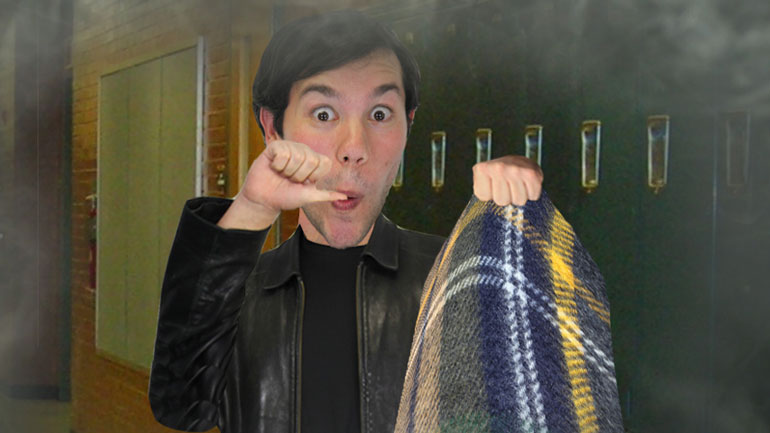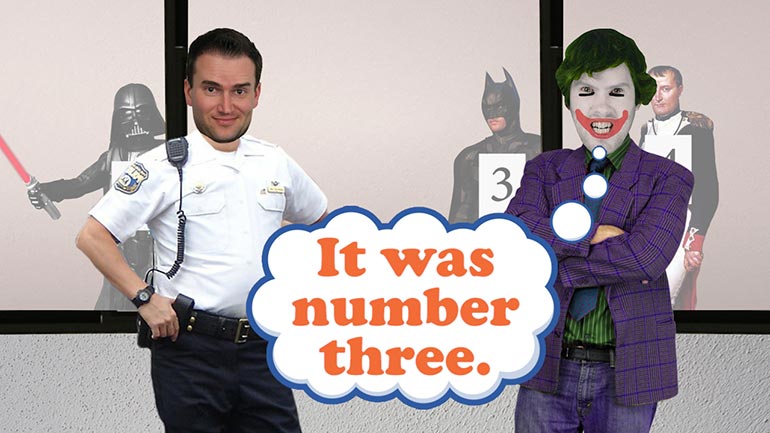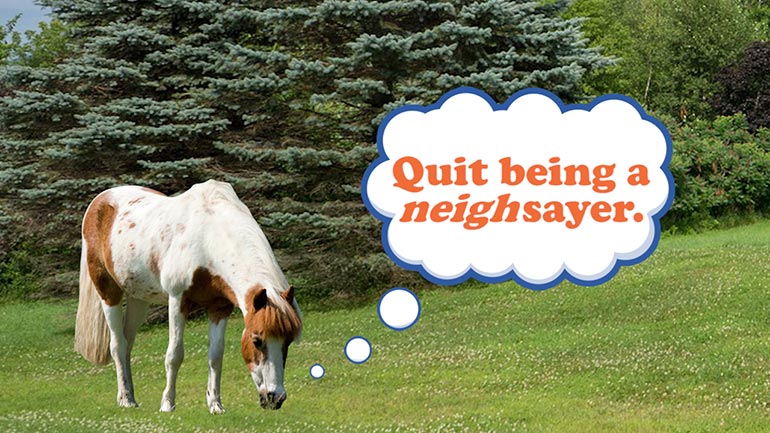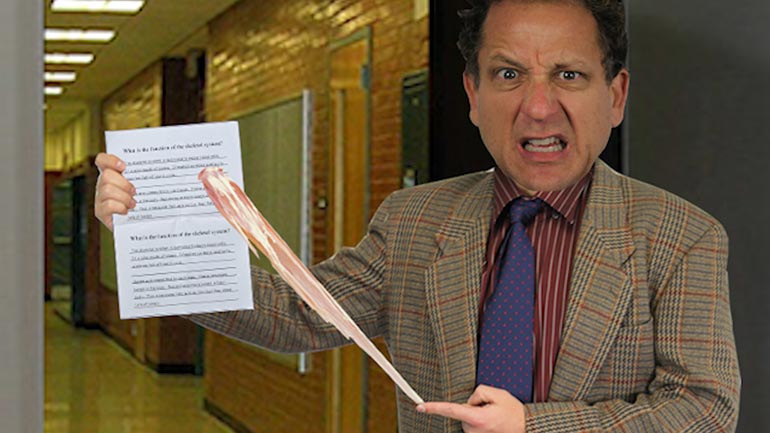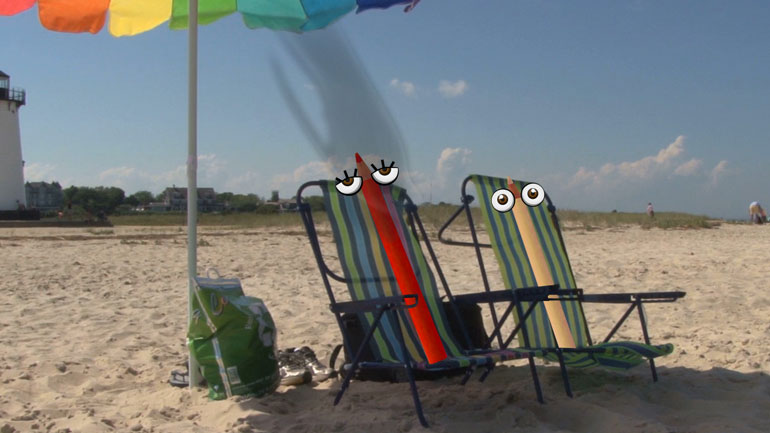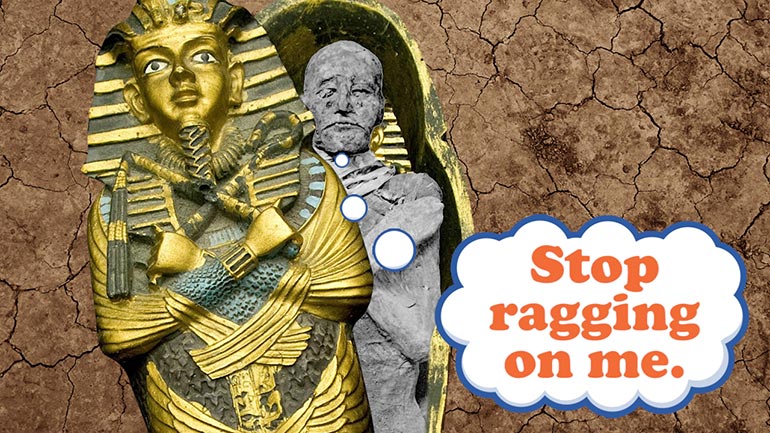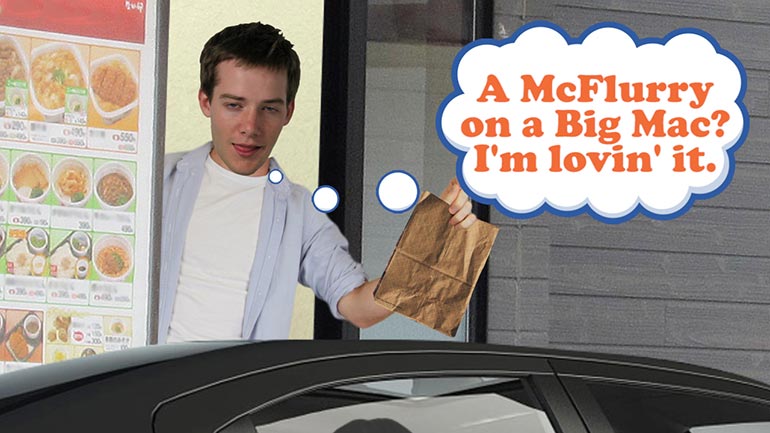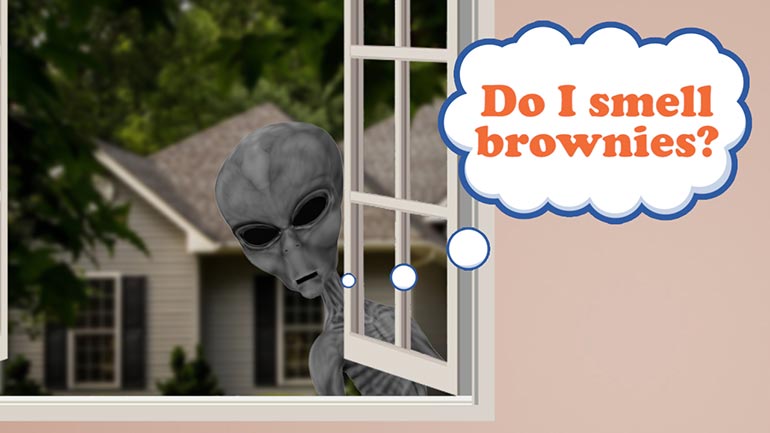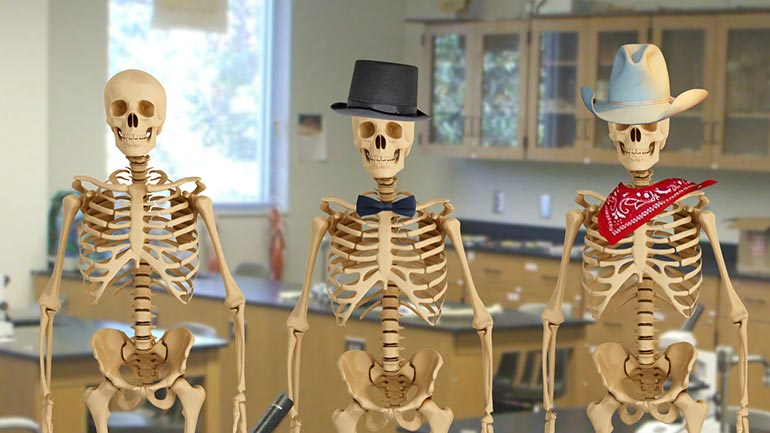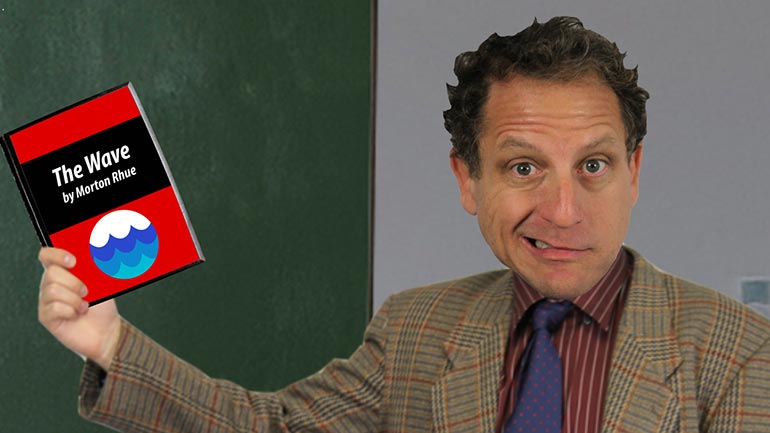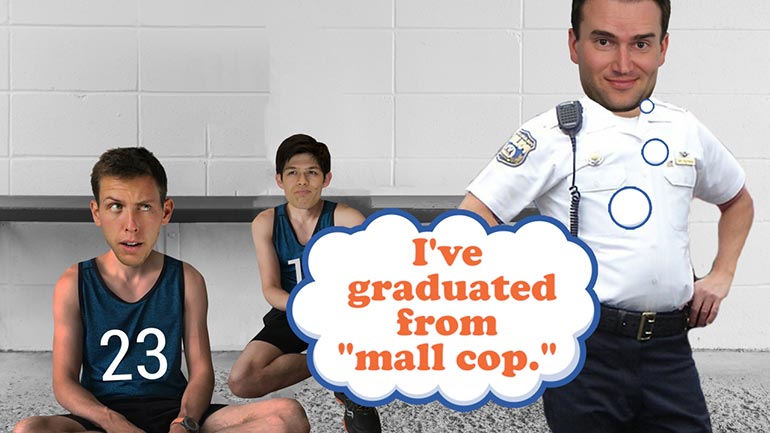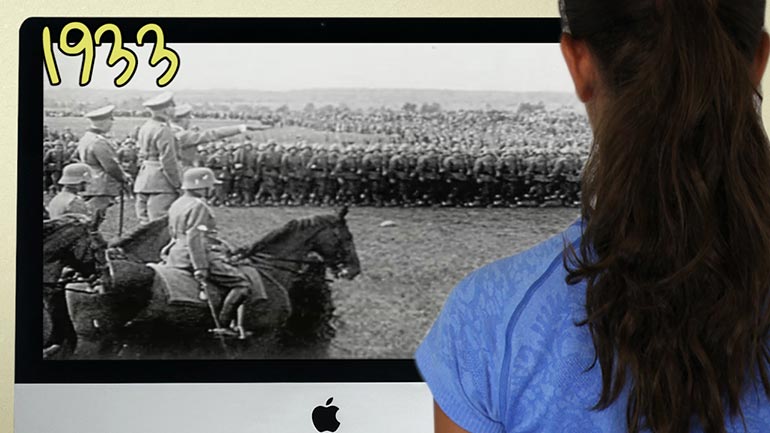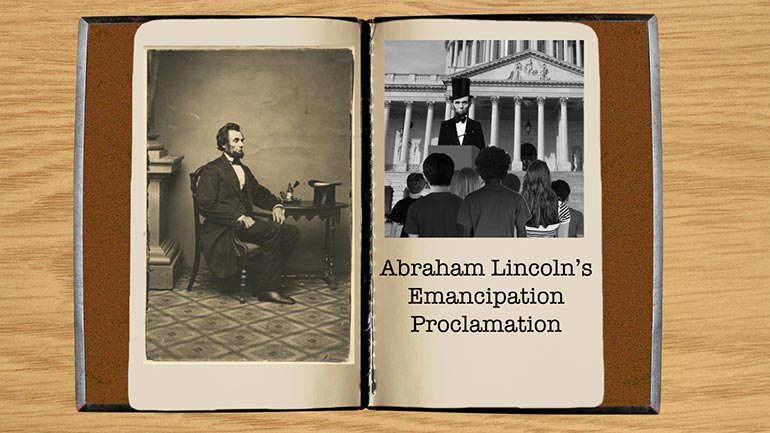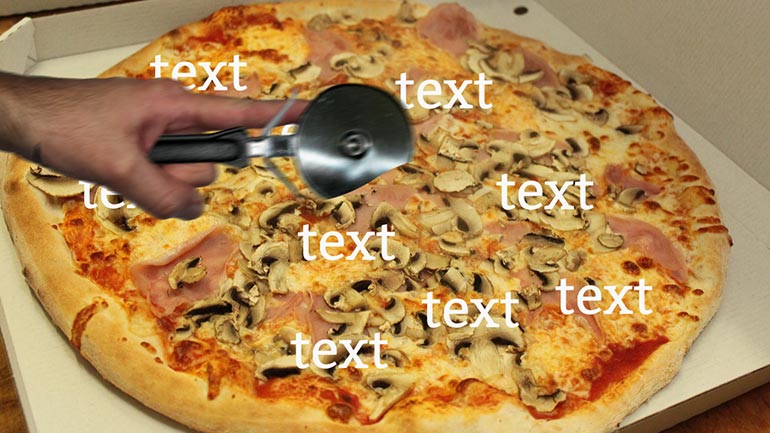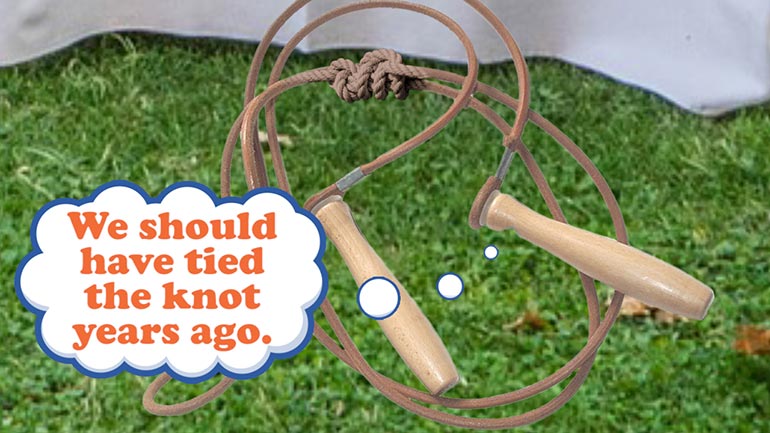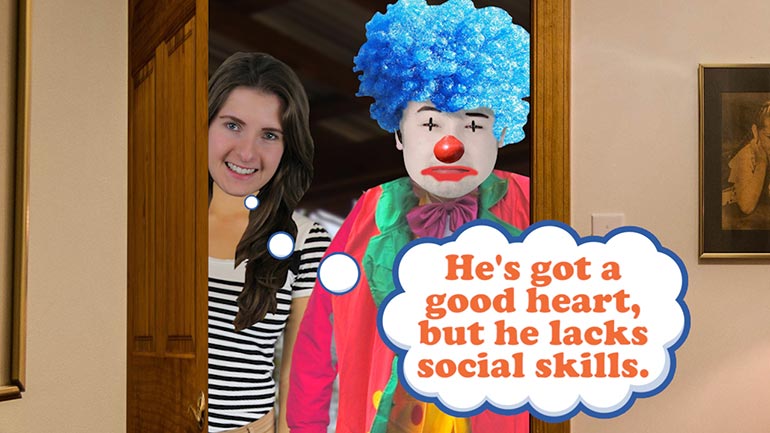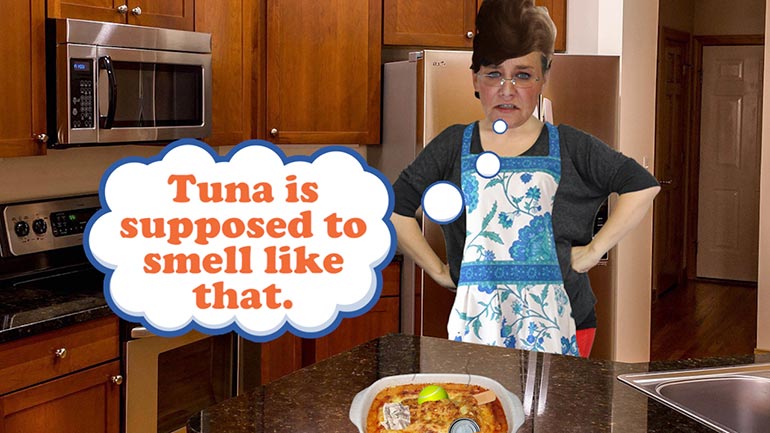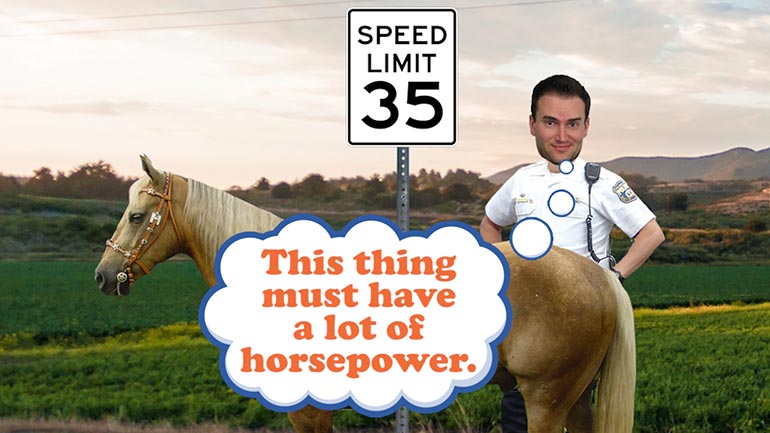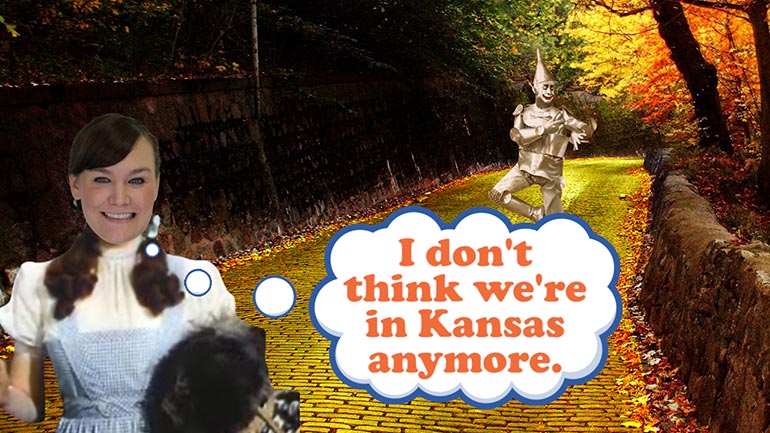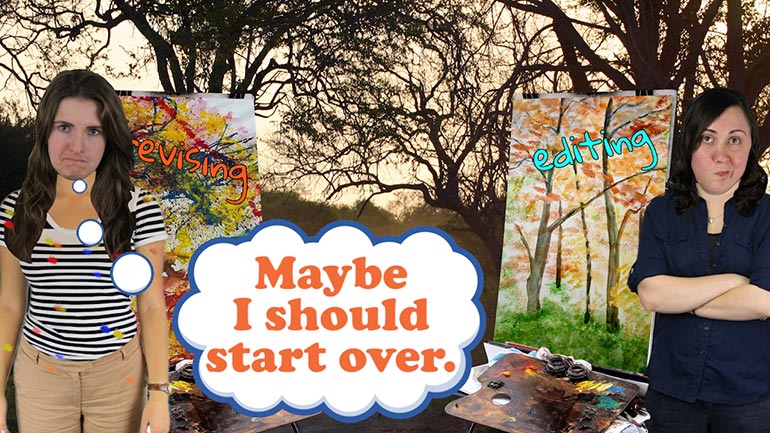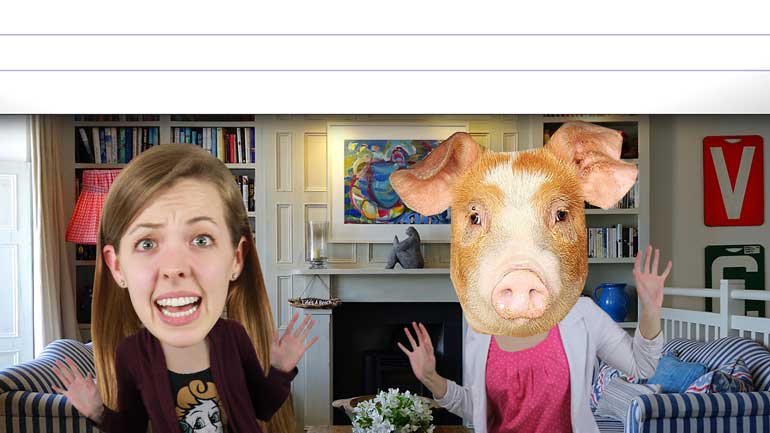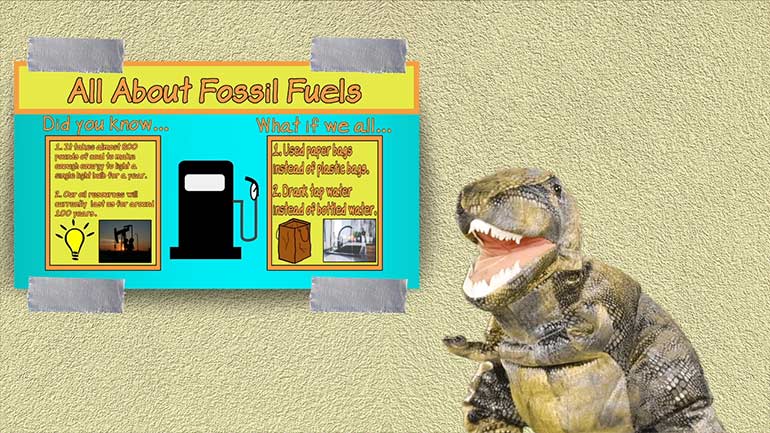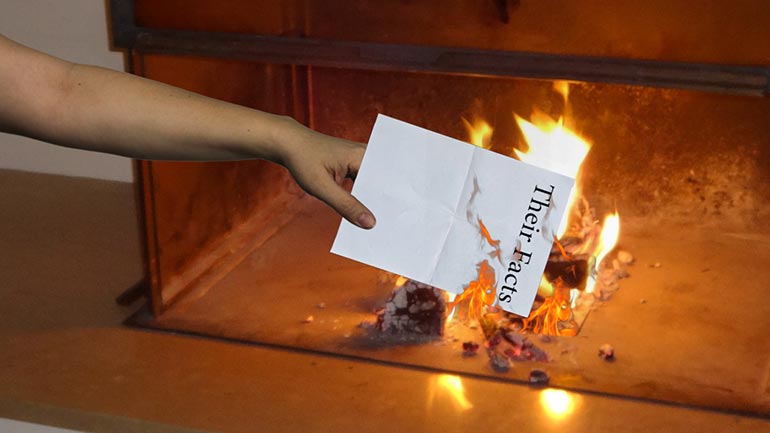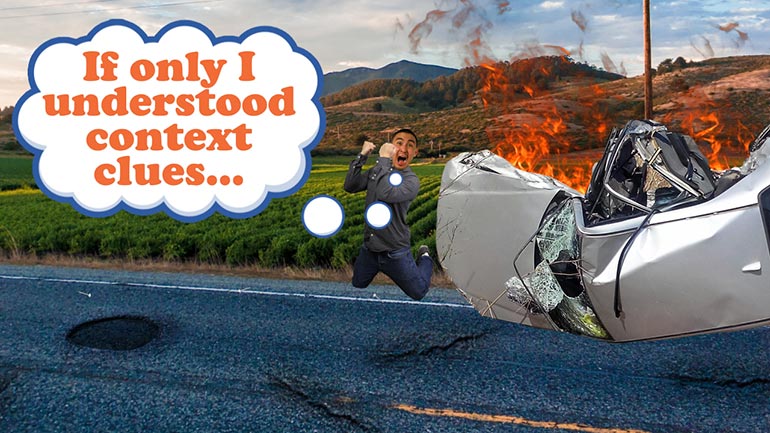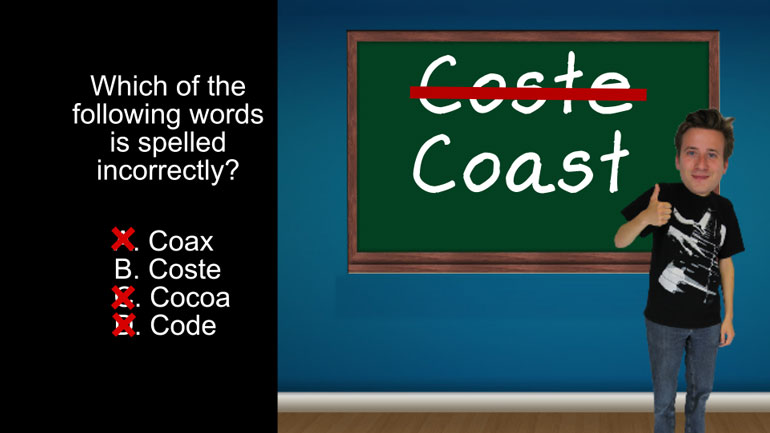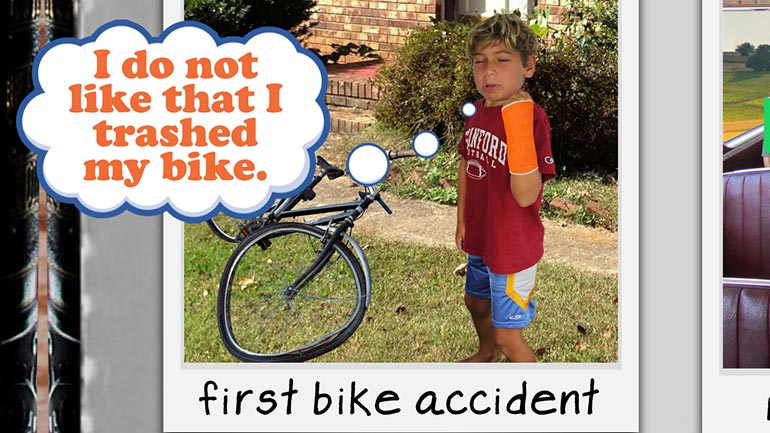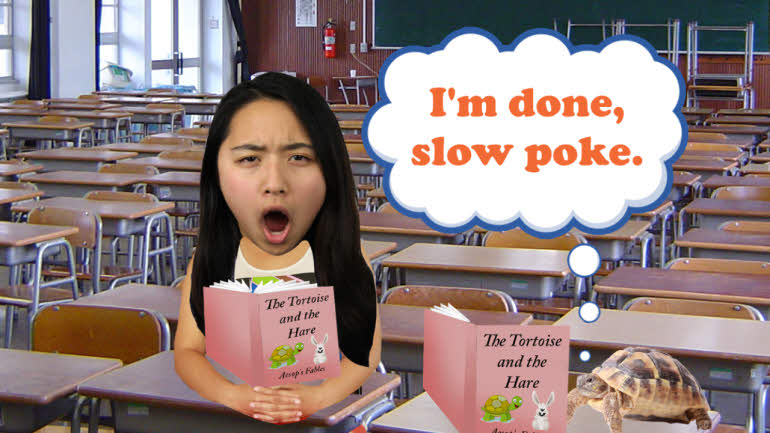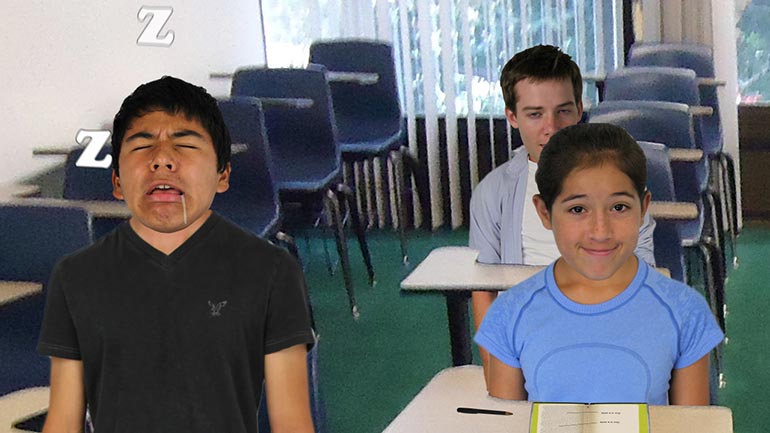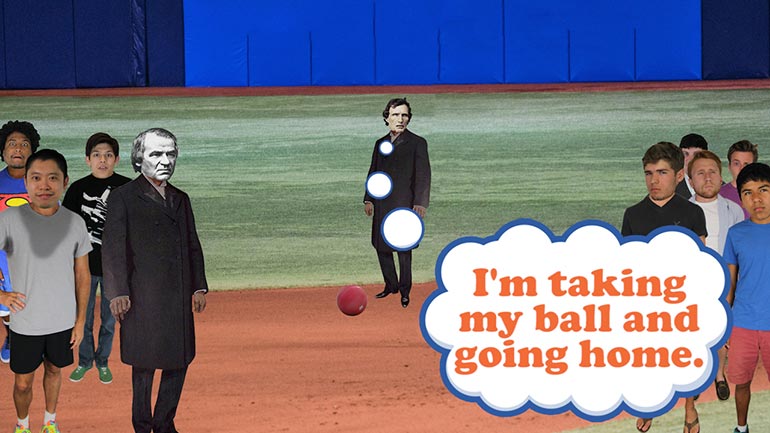ShmoopTube
Where Monty Python meets your 10th grade teacher.
Search Thousands of Shmoop Videos
Language Arts Videos 106 videos
Picking a theme for a party is pretty easy—always go karate party, because they come with nunchuck egg rolls. Themes in writing are a little diff...
Calling a book “non-fiction” is a bit like saying you have a dog. Sure it covers the basics, but there's a big difference between a Doberman an...
ELA Drills, Advanced: Punctuation 4. Which of the words is spelled correctly?
ELA 5: Outlining 47 Views
Share It!
Description:
Today we'll teach you about how use outlines so that you don't turn in jellyfish as homework assignments. Trust us, this is an important one. Jellyfish can sting you and are also probably not passable as essays...
Transcript
- 00:04
[Coop and Dino singing]
- 00:13
Think of how dumb and blobby your body would be without a skeleton. [Man bouncing up and down]
- 00:17
You’d be like a jellyfish or something...
- 00:20
…Actually, that might be pretty cool…
- 00:21
But the dumb and blobby thing definitely applies to your essays. [Essay blowing in the wind]
Full Transcript
- 00:25
If you use an outline, everything stays nice and rigid and organized.
- 00:30
If not… you’re turning a jellyfish in to your teacher on Monday. [Boy hands over jellyfish to teacher]
- 00:33
…Actually…that still sounds pretty cool…
- 00:35
But just in case your teacher hates jellyfish or something, let's review how to make a solid outline.
- 00:40
The first step, or the skull of your outline, if you will, is to pick a topic to write about. [Arrow points to a skull]
- 00:45
You have to decide what you want your reader to get out of your paper.
- 00:48
Then, it's time to think about the main points you’ll want to make in your paper.
- 00:52
These will be the main points in your outline, as well. [Examples of main points included in a paper]
- 00:54
You can think of them as ribs… or something…
- 00:57
whatever, this analogy isn't perfect. Just go with it.
- 01:00
And just like skeletons, outlines come in many styles. [Skeletons dressed as cowboy and magician]
- 01:03
…Okay, fine, we'll drop the skeleton thing…
- 01:05
Anyway, there’s the Alphanumeric outline, which uses Roman numerals for the main points...
- 01:10
…and letters and numbers for the subpoints, which are the arguments and facts that help [Coop explaining alphanumeric outline]
- 01:14
support each of your main topics.
- 01:16
There’s also the decimal outline.
- 01:18
The decimal outline uses numbers drawn out to – you guessed it – different decimal places. [Dino discussing the decimal outline]
- 01:23
You can also decide to write your outline in short phrases -- or in full sentences.
- 01:27
You can do whatever works best for you! Outlines are cool like that.
- 01:31
Let’s take a look at an Alphanumeric outline with short phrases. [Cool guy in a street and paper airplane hits him in the face]
- 01:34
Once you have your main points, you’ll want to add sub-points that help you figure out
- 01:38
the details of what you have to say.
- 01:40
For example, in the section of our outlines on “Monkeys in the Wild,” we may want
- 01:43
to explore the places they live, how they behave, and what they eat. Since we’re doing [Examples of subpoints]
- 01:48
an Alphanumeric outline, these subpoints will be labeled with capital letters.
- 01:52
If we wanted to get really detailed, we could even add subpoints to the subpoints, which
- 01:56
we would mark with numbers.
- 01:58
For example, in talking about where monkeys live, we might want to go into details about
- 02:02
the different continents where monkeys are found.
- 02:05
How detailed you want your outline to be depends on how much information you want to include [Person scribbling out subpoints]
- 02:09
in your paper.
- 02:10
Your outline can also include a section for an introduction and conclusion.
- 02:14
Some people find that it’s easier to write the introduction and conclusion after they’ve
- 02:17
already outlined their main point. But again - the best way to do it is the best way that works for you.
- 02:22
And voila! There you have it – the finished outline. [Boy celebrates with a finished outline]
- 02:25
Oh – and just because we think of an outline as the “bones” of your paper doesn’t
- 02:29
mean you can get out of doing one with the “dog ate my homework” excuse.
- 02:33
Sorry. [Girl shows teacher a bag of dog poop]
Related Videos
Check out the best bias video ever made, courtesy of the most awesome and amazing educational website in existence.
No, this isn't a terrible new mint-peach bubble gum flavor...though it does tend to leave a bad taste in people's mouths.
Those settlers in Jamestown really should have settled down with all that land-stealing. Tobacco's bad for you anyway.
Being born out of multiple wars doesn't quite seem to fit the peaceful, polite Canadians we know and love today...oh wait, they were called The Bea...
Not every cartoon is meant to entertain small children while their mother gets some "Mommy time." There are also political cartoons, which are mean...


